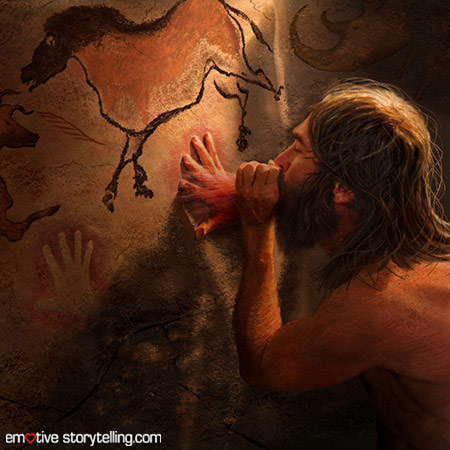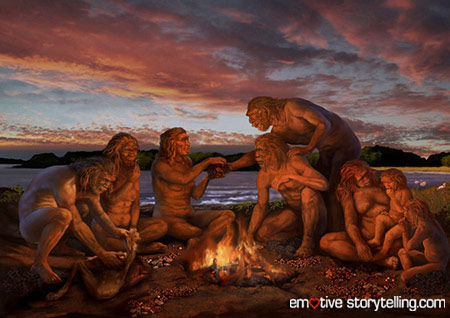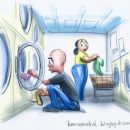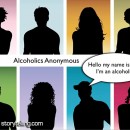 Think about how information and efforts at persuasion have been successfully transmitted from person to person from the beginning of time. Now consider how long the written word has been available to the average person – only 400 years.
Think about how information and efforts at persuasion have been successfully transmitted from person to person from the beginning of time. Now consider how long the written word has been available to the average person – only 400 years.
Persuasion and teaching has always been accomplished through the use of story and in relationships, whether in the form of a fairy tale, parable or watching the success of a neighbor or mentor. We are wired to pay attention, to persuade and to learn lessons and values in the context of community, most often through stories. We remember information presented in narrative much more effectively than we do information presented as a set of facts.
It’s only been in the last few hundred years that we are expected to do learn alone, with a piece of paper or book as our teacher. Changing the presentation from paper to computer or smart phone screen has, in actuality, changed very little – it’s still solitary learning.
These forms of information, as ubiquitous as they are, are not designed for the heart and mind. They aren’t in today’s parlance “sticky” or memorable. They aren’t emotive stories that engage and transform people or move them to action. They fall far short of making meaningful difference in people’s lives. So much of this stuff is forgettable. The shear amount of cognitive information that now overwhelms our senses daily has effectively turned off our interest and numbed our sensitivity.
So much of the onslaught is deemed trivial and temporary. It has made paying attention to what is important, nearly impossible. This problem of non-engagement is confronting all aspects our lives, personal growth, relationships, social, education and business.
What do we do about it? The answer lies in our in roots and beginnings as human beings. We need to remember were we came from and begin to re-insert that understanding as the foundation to build forward. This will shape and redefine where we are going as individuals, families and communities. Our brains have evolved to help us understand, remember and tell stories.

Listening to stories and telling them helped our ancestors to live humanly – to be human. But somewhere along the way our ability to tell (and to listen to) stories was lost. Over time, people have become less tolerant of which comes only over time: understanding, insight and wisdom. The mythologist Joseph Campbell observed: “We’re interested in the news of the day, and the problems of the hour.” Thus distracted, we have become a world that has lost all real sense of time and value. Funny, that one of the most common complaint is that we “have no time.”
Yet, by rediscovering the ancient wisdom of storytelling combined with new advances in neuroscience, virtual agents and digital media, we can elevate essential aspects of our health and well being. The use of story and narrative to influence health behavior has been rediscovered, and research has increasingly supported this strategy. Today, these seminal forces and technologies are combining to drive engagement, adherence and behavior change in healthcare, marketing education, and business. The digital age is ripe and ready for the power of storytelling.










Comments are closed.